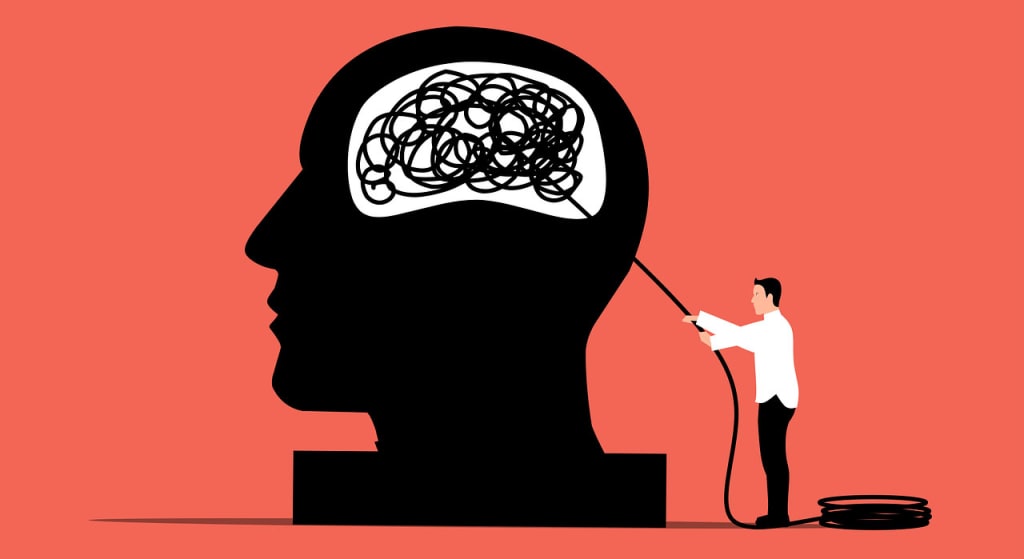10 Simple Ways to Improve Your Mental Health Today
Mental Health

Mental health is just as important as physical health, and it's something that we all need to take care of daily. With the many demands and stresses of modern life, it can be easy to neglect our mental health. However, there are simple steps that we can take every day to improve our mental health and well-being. In this article, we'll explore 10 simple ways to improve your mental health today.
Practice Mindfulness
Mindfulness is the practice of being fully present at the moment and aware of your thoughts and feelings. It's a powerful tool for reducing stress, anxiety, and depression, and it can help you feel more grounded and centered. You can practice mindfulness by taking a few minutes each day to sit quietly and focus on your breath, or by using a mindfulness app like Headspace or Calm.
Get Enough Sleep
Sleep is crucial for both physical and mental health, and getting enough sleep can have a major impact on your mood, energy levels, and overall well-being. Aim for 7-8 hours of sleep each night, and try to establish a consistent sleep routine that allows you to wind down before bed.
Connect with Others
Social connection is essential for good mental health, and it's important to make time for meaningful relationships with friends, family, and loved ones. Whether you're catching up over a cup of coffee or going for a walk together, spending time with others can help reduce stress and boost your mood.
Practice Gratitude
Gratitude is a powerful emotion that can help shift your focus from negative thoughts to positive ones. Take a few minutes each day to reflect on what you're grateful for, whether it's a supportive friend, a beautiful sunset, or a good cup of coffee. Writing down your gratitude list in a journal can be a helpful practice.
Move Your Body
Exercise is one of the most effective ways to improve your mental health, as it releases endorphins that can boost your mood and reduce stress. You don't have to spend hours at the gym to reap the benefits of exercise; a brisk walk or a yoga session can be just as effective.
Practice Self-Care
Self-care means taking care of yourself in a way that promotes physical, emotional, and mental well-being. This can mean anything from taking a bubble bath to going for a massage to treating yourself to your favorite meal. The key is to make time for activities that make you feel good and help you recharge.
Limit Social Media Use
While social media can be a great way to connect with others, it can also be a major source of stress and anxiety. Try to limit your social media use to a few minutes each day, and make sure to unfollow or mute accounts that make you feel bad about yourself.
Practice Positive Self-Talk
The way we talk to ourselves can have a major impact on our mental health. Try to practice positive self-talk by focusing on your strengths and accomplishments, and by treating yourself with the same kindness and compassion that you would show to a friend.
Learn Something New
Learning a new skill or taking up a new hobby can be a great way to boost your mood and increase your sense of accomplishment. Whether it's learning to play an instrument, taking a cooking class, or studying a new language, find something that interests you and give it a try.
Seek Professional Help
If you're struggling with mental health issues that are impacting your daily life, it's important to seek professional help. There's no shame in asking for help, and a mental health professional can provide you with the support and resources you need to feel better.
In conclusion, improving your mental health doesn't have to be complicated or time-consuming. By incorporating these simple practices
into your daily routine, you can start to see improvements in your mood, energy levels, and overall well-being. Remember to be patient with yourself and to take things one step at a time. It's okay if you don't get everything right all at once; the important thing is to keep trying and to keep moving forward.
Another important thing to keep in mind is that mental health is not a one-size-fits-all solution. What works for one person may not work for another, so it's important to experiment with different strategies and find what works best for you. You may also find that your mental health needs change over time, so it's important to stay attuned to your body and mind and to adjust your self-care practices accordingly.
Finally, remember that improving your mental health is a journey, not a destination. There will be ups and downs, setbacks and successes, but by committing to taking care of yourself and prioritizing your mental health, you can create a more fulfilling and satisfying life for yourself.
Self-care, seeking help when needed, and incorporating healthy habits into our daily routine.
In addition to the 10 strategies outlined above, there are many other ways to improve your mental health. Some people find that creative pursuits like writing, painting, or playing music can be a helpful outlet for stress and anxiety. Others find that spending time in nature, practicing meditation, or engaging in spiritual practices can be beneficial for their mental health.
Ultimately, the key to improving your mental health is to find what works best for you and to make it a priority in your daily life. By taking care of your mental health, you can create a stronger foundation for yourself, and be better equipped to handle the challenges that life may bring.
It's also important to remember that seeking professional help is always an option if you are struggling with your mental health. A therapist or counselor can provide guidance and support, and can help you develop personalized strategies for managing your mental health. If you are experiencing symptoms of depression, anxiety, or other mental health conditions, it's important to reach out for help.
In addition to seeking professional help, it's also important to build a strong support system of family and friends. Surrounding yourself with positive, supportive people can help you feel more connected and less isolated, which can be beneficial for your mental health. If you're struggling to connect with others, consider joining a social group or volunteer organization to meet new people and build new relationships.
Finally, it's important to remember that improving your mental health is a process, and it's okay to take things one step at a time. You don't need to completely overhaul your life overnight to see improvements in your mental health. Instead, focus on making small changes that you can sustain over time, and celebrate your successes along the way.
In conclusion, taking care of your mental health is essential for living a happy, fulfilling life. By incorporating simple habits like exercise, healthy eating, and mindfulness into your daily routine, seeking professional help when needed, and building a strong support system, you can improve your mental health and create a stronger foundation for yourself.
About the Creator
APR
I’m a writer, lunatic, imagine in a parallel universe I might be a caricaturist or a botanist or somewhere asleep on the moon but here, I am a writer, turning moments into multiverses and making homes out of them. Am always happy to write.
Enjoyed the story? Support the Creator.
Subscribe for free to receive all their stories in your feed. You could also pledge your support or give them a one-off tip, letting them know you appreciate their work.






Comments
There are no comments for this story
Be the first to respond and start the conversation.